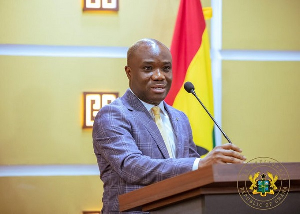Tamale, Dec. 9, GNA - A group of children from selected Junior and Senior High Schools have questioned the safety and survival of children in the country as most of the child protection institutions are weak.
They said majority of children might continue to go through hardship and vulnerability if these institutions lacked the resources to discharge their constitutional duty.
The children said this at the regional consultative meeting with children on Ghana’s third, fourth, and fifth Consolidated Report to the United Nations Convention on the Rights of the Child (CRC) in Tamale.
The meeting was to seek the views of children on the implementation of the CRC to enable Ghana to compile the consolidated report to the UNCRC in 2012.
They also expressed concerns about some traditional practices that threatened the health and psychological development of children.
Emmanuel Essiaw, a JHS two pupil of the Seventh Day Adventist School, suggested that while maintaining the good aspect of the nation’s rich culture, there was the need to institute measures to put an end to the abusive and harmful practices such as trokosi, female genital mutilation and the killing of deformed children.
Mr Syvester Kye-Gyamfi, an official from the Ministry of Women and Children’s Affairs, said the Convention on the Right of the Child (CRC) explained the rights and responsibility of children as well as their freedoms.
He advised that “the right of child does not mean they should disrespect their parent and other elderly people”.
Mr Kye-Gyamfi said although the ministry was resource constrained there had been a progress in the advancement of child right in the country over the years and called for a joint effort between civil societies and government to protect children.
Madam Florence Ayisi Quartey, an Official of the Department of Children in Accra,
said despite the unanimous ratification of the CRC, the realization of children’s rights was still far from reality but added that a universally accepted code for the treatment of children was a major step forward.
General News of Friday, 9 December 2011
Source: --
















